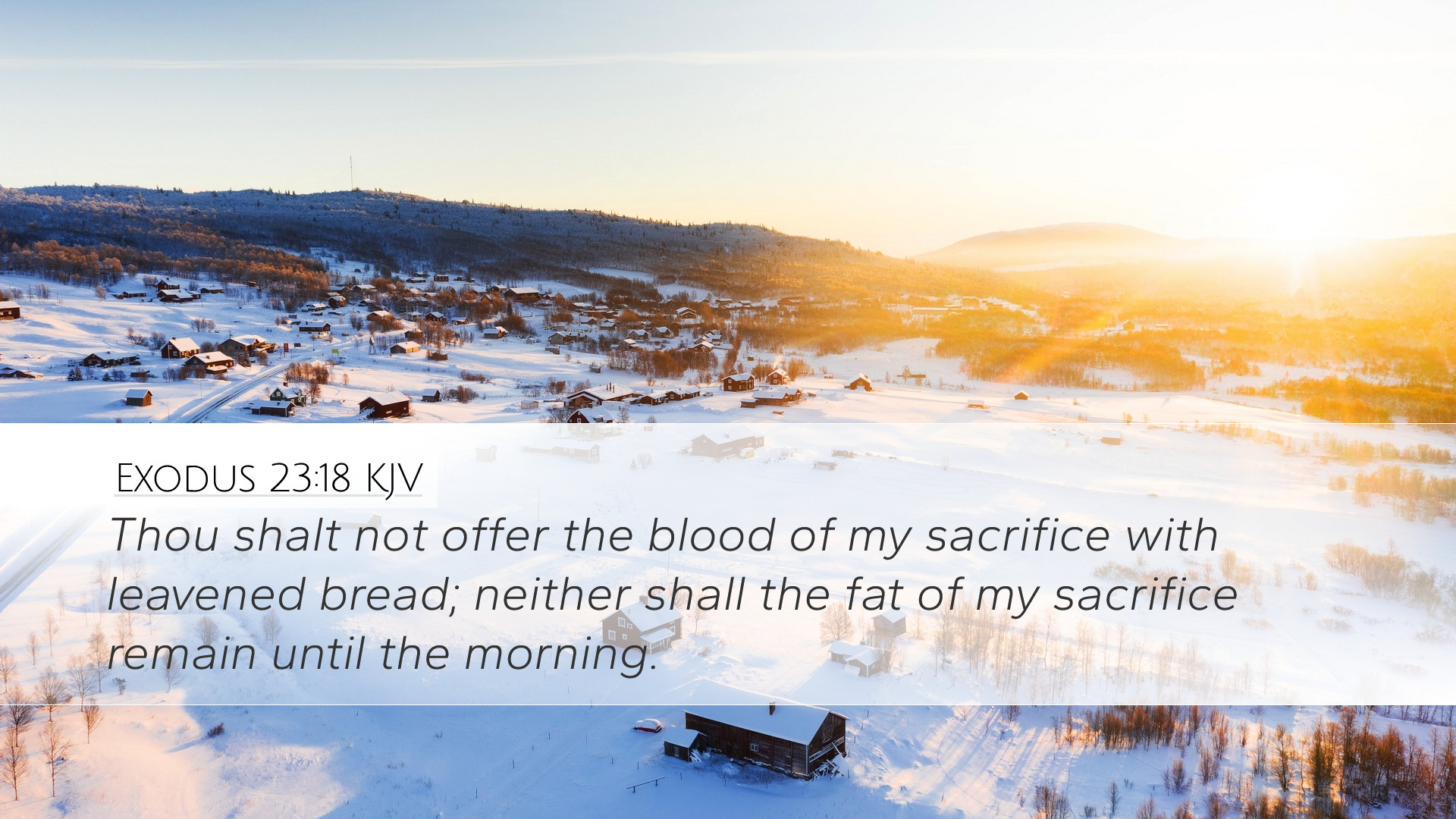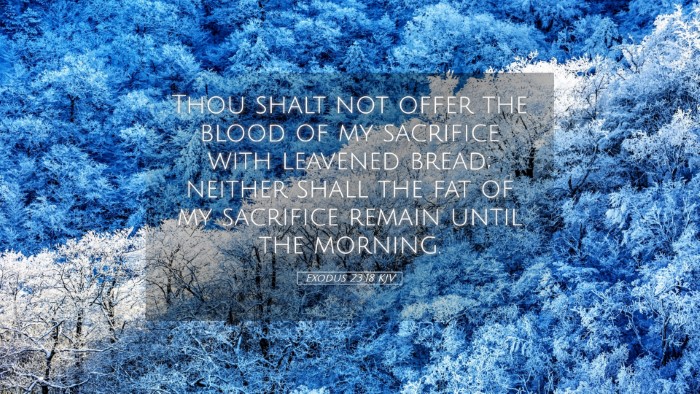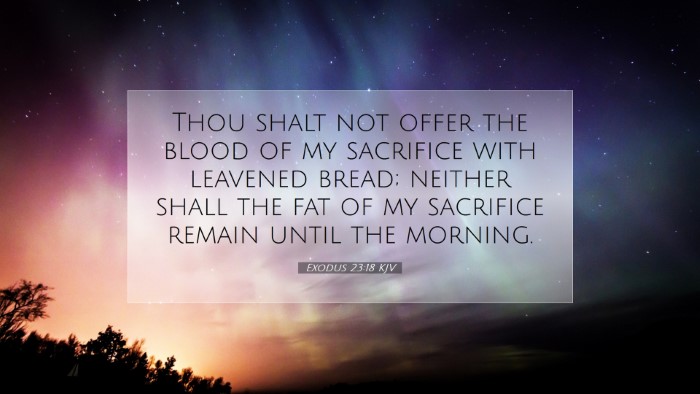Commentary on Exodus 23:18
Verse: "You shall not offer the blood of my sacrifice with leavened bread, nor shall the fat of my sacrifice remain until morning."
Introduction
The verse is part of the larger context of the instructions given to Israel regarding worship and sacrifice. Within this passage, we observe crucial elements surrounding the nature of sacrifices and their presentation before God, as well as the attitudes required from worshippers. This commentary aims to unpack the significance of these directives as understood by various theologians and scholars, providing deep insights into their spiritual, historical, and theological implications.
The Significance of Sacrifices
According to Matthew Henry, sacrifices in the Old Testament were a means of atonement and communion with God. They symbolized the need for an offering in recognition of sin and the holiness of God. However, the specifics of the sacrifices, as mentioned in Exodus 23:18, highlight the importance of sincerity and purity in worship.
Albert Barnes emphasizes that the instruction not to offer the blood of the sacrifices with leavened bread signifies a dichotomy between the sacred and the profane. Leaven often represents sin and corruption in scripture, and using it in conjunction with the sacred acts of sacrifice would imply a mixing of righteousness with unrighteousness, which God strictly forbids.
Leaven in Scripture
Leaven is a recurrent theme throughout the Bible. Adam Clarke posits that leaven symbolizes moral decay and corruption, as seen in references throughout scripture such as Matthew 16:6 and 1 Corinthians 5:6-8. Thus, the directive to avoid leaven during sacrifices serves as a metaphor for the necessity of approaching God with a pure heart and mind. The requirement underscores the need for internal spiritual cleanliness that must accompany external acts of worship.
Timing of the Sacrifice
The second part of this verse admonishes that "the fat of my sacrifice remain until morning." Matthew Henry notes that fat in sacrificial terms indicates the best of the offering, reserved for God’s consumption. The instruction against leaving it until morning can be understood as a call for immediacy in our offerings to God. Procrastination in giving one’s best to God reflects not only a lack of reverence but also a misunderstanding of the relationship dynamics between the Creator and His creation.
- Spiritual Urgency: Albert Barnes articulates the importance of urgency in our spiritual lives; delaying our offerings can lead to complacency in faith. This directive reflects an inherent call for believers to prioritize their relationship with God.
- Quality of Offerings: Adam Clarke observes that God desires the best from His people, pointing out that the 'fat' symbolizes the finest part, which reiterates God's expectation of excellence in worship.
Broader Context within the Covenant
Exodus 23:18 is part of the larger covenantal framework established between God and Israel. Scholars argue that the directives given in the Mosaic Law showcase the importance of order and reverence in approaching God. Matthew Henry reiterates that the Israelites were to cultivate a relationship defined by holiness, which included proper sacrificial practices. Disregarding these mandates could lead to the forfeit of blessings and ultimately to divine judgment.
Practical Applications for Modern Believers
This verse, while situated in an ancient context, resonates with modern believers through principles of holiness and commitment in worship.
- Pursuing Holiness: Albert Barnes encourages believers to examine their lives for 'leaven'—anything that may corrupt their relationship with God. This could be physical actions, but also attitudes and motivations that detract from genuine worship.
- Value Your Offerings: Following Adam Clarke's insights, contemporary worshippers are reminded to present their offerings—be they time, talents, or resources—with a heart aimed at honoring God, and essentially, not giving what is leftovers or of lesser quality.
Conclusion
Exodus 23:18 encapsulates profound theological teachings regarding the nature of acceptable worship. The admonitions against leaven and the stipulations surrounding sacrificial practices reveal God's commitment to holiness and the expectation of His followers to engage in sincere, untainted worship. For pastors, students, theologians, and Bible scholars, this verse poses not merely an historical inquiry but a lasting challenge to evaluate the quality of their spiritual offerings and the purity of their motives in commune with God.


